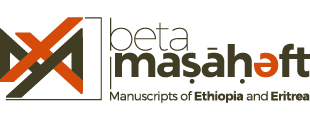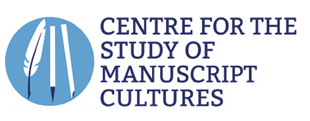The Manuscript Heritage of Ethiopia: Theory and Practice
Third Hiob Ludolf Centre Summer School in Ethiopian and Eritrean Manuscript Studies
Axum Hotel, Mekelle, Ethiopia, 24-29 September 2018
From 24 to 29 September 2018, the Hiob Ludolf Centre for Ethiopian Studies - this time in cooperation with the St Yared Center for Ethiopian Philology and Manuscript Studies (YCEP) at Mekelle University, Ethiopia, and with a generous support from the VolkswagenStiftung - organized its Third Summer School in Ethiopian and Eritrean Manuscript Studies.
Introduction
Manuscripts are among the central objects of cultural heritage of Ethiopia, and their management has been a focus of research and activity in recent years.
There is no reliable figure for the total number of surviving manuscripts.
For Christian Ethiopic manuscripts, the numbers are likely in hundreds of thousands: there are many thousands churches and monasteries in Ethiopia and Eritrea, each in the possession of at least several manuscripts, with biggest collections counting several hundred codices. While the assumed numbers are very high, the number of historical – most valuable for researchers – manuscripts is diminishing at a quick pace. Field research confirms that over 90% of each manuscript collection is composed of manuscripts dating from the nineteenth and twentieth century. This underlines the necessity to record what has survived, and analyse the form and the content of these witnesses of the centuries past.
No reliable number for Islamic manuscripts in Ethiopia is known; until recently, only a few dozens were available and/or catalogued. In the past years, several hundred have been surveyed, partially digitized, and described, but more effort is still needed in evaluating this part of Ethiopian written heritage.
Many of the achievements in Ethiopian manuscript studies from the last few years have been the result of work of scholars based in Hamburg, who have also successfully organized two Summer Schools, vastly appreciated by the students and young scholars of Ethiopian studies, Semitic studies, and related disciplines.
The 2018 School was organized in Mekelle, in cooperation with the St Yared Center for Ethiopian Philology and Manuscript Studies (YCEP) at Mekelle University.
Aims of the school
The school aimed at training graduate students and junior scholars in methods used in Ethiopian manuscript studies. Lectures and seminars in topics ranging from History to Philology to Codicology to Cataloguing covered the most central aspects of research and help in developing skills necessary for theoretical and practical tasks in the study of manuscripts. Digital technologies that have become indispensable in the past years were showcased. Practical exercises included digitization and analytical description of manuscripts.
The school was open to students and scholars of all disciplines, but some background in Christian oriental studies (not necessarily Gəʿəz) was expected.
Participation
The Summer School was conducted in English. The classes shall take place every day from Monday (Sept. 24) through Saturday (Sept. 29).
20 participants were selected from all qualified applications and 12 more places were distributed locally.
All students received a certificate of participation.
* The dates of the flight can be chosen freely by the grantees. In case of earlier arrivals and later departures note that while the travel shall be covered, the hotel and per diem are only covered for the Summer School days. The accomodation during the following 20th International Conference of Ethiopian Studies (Mekele, 1-5 October 2018) is not covered.
Participants of the First and Second Summer School cannot reapply for the Third Summer School.
Please check the registration page for application requirements.





